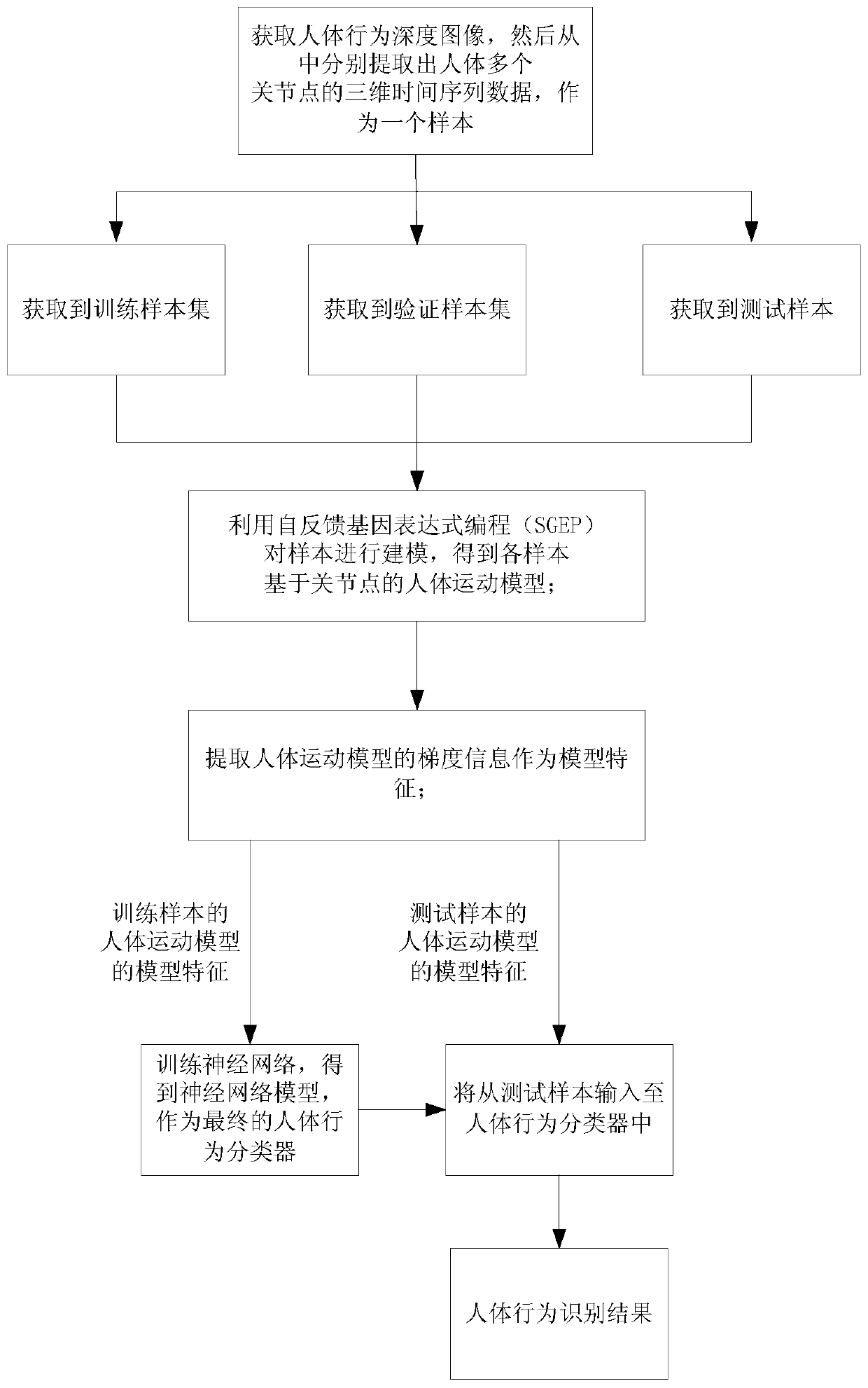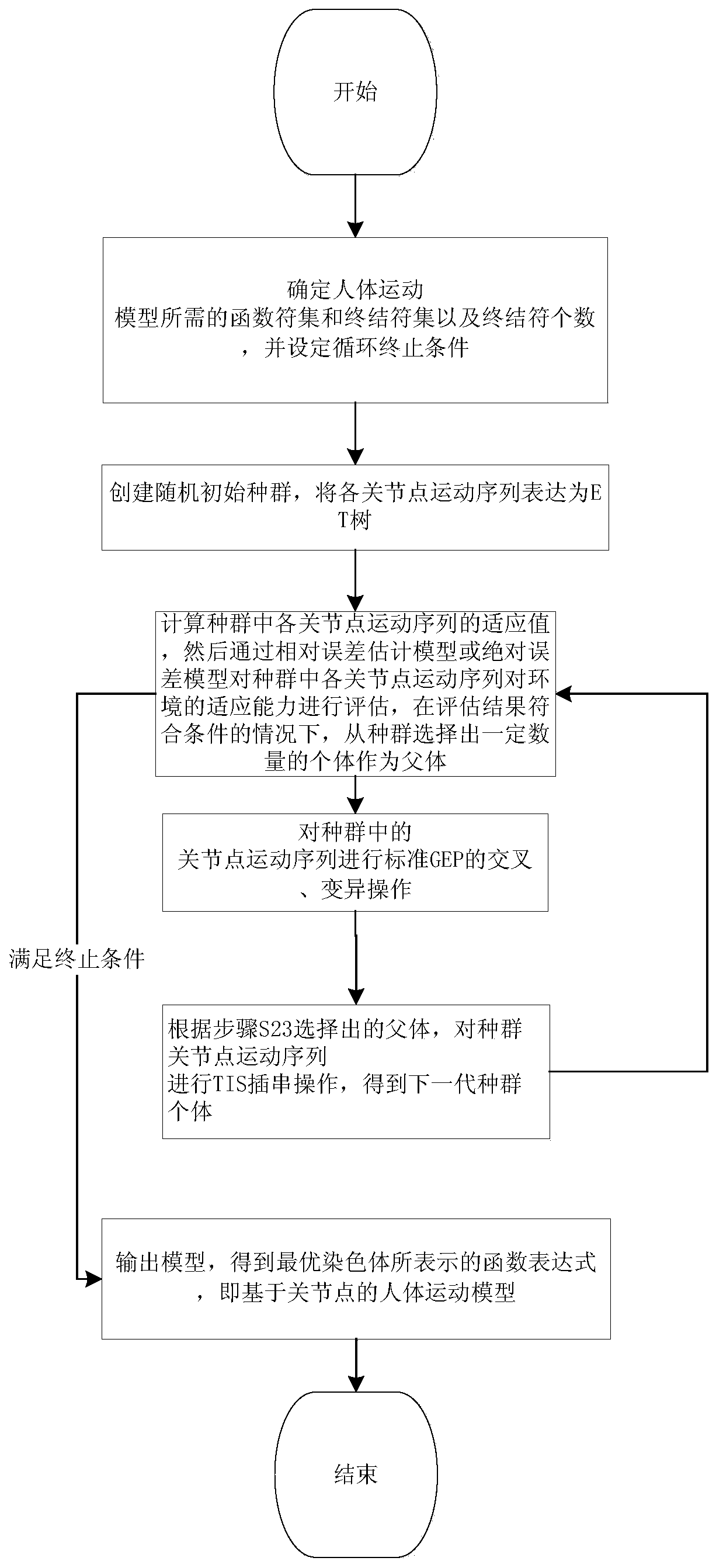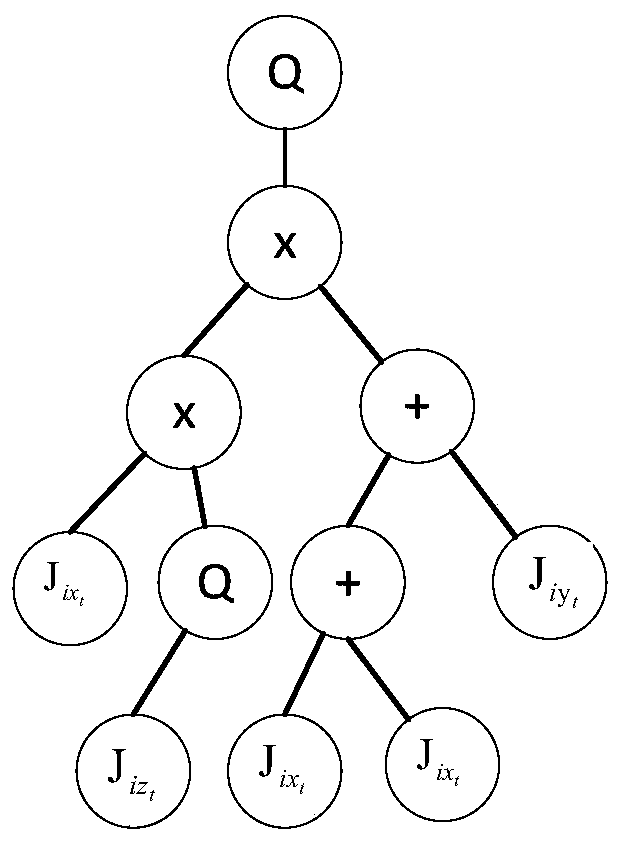A Human Behavior Recognition Method Based on Self-feedback Gene Expression Programming
A recognition method and expression technology, applied in character and pattern recognition, instruments, biological neural network models, etc., can solve problems such as low data accuracy, complexity of human motion, and poor scalability
- Summary
- Abstract
- Description
- Claims
- Application Information
AI Technical Summary
Problems solved by technology
Method used
Image
Examples
Embodiment
[0054] This embodiment discloses a human behavior recognition method based on self-feedback gene expression programming, which is characterized in that, as figure 1 As shown, the steps are as follows:
[0055] S1. Obtain the depth image of the human body behavior, and then extract the three-dimensional time series data corresponding to the N joint points of the human body from the depth image of the human body behavior, as a sample, that is, a sample includes the three-dimensional time series data of the N joint points of the human body Wherein in the present embodiment, use Microsoft's somatosensory device Kinect in conjunction with the second generation SDK and OpenCV computer vision library to obtain the human body behavior depth image, utilize TOF (Time Of Flight, time of flight) technology, calculate the infrared sensor emission in the Microsoft Kinect sensor The phase difference reflected after the light reaches the human body is obtained to obtain the depth image of the...
PUM
 Login to View More
Login to View More Abstract
Description
Claims
Application Information
 Login to View More
Login to View More - R&D
- Intellectual Property
- Life Sciences
- Materials
- Tech Scout
- Unparalleled Data Quality
- Higher Quality Content
- 60% Fewer Hallucinations
Browse by: Latest US Patents, China's latest patents, Technical Efficacy Thesaurus, Application Domain, Technology Topic, Popular Technical Reports.
© 2025 PatSnap. All rights reserved.Legal|Privacy policy|Modern Slavery Act Transparency Statement|Sitemap|About US| Contact US: help@patsnap.com



